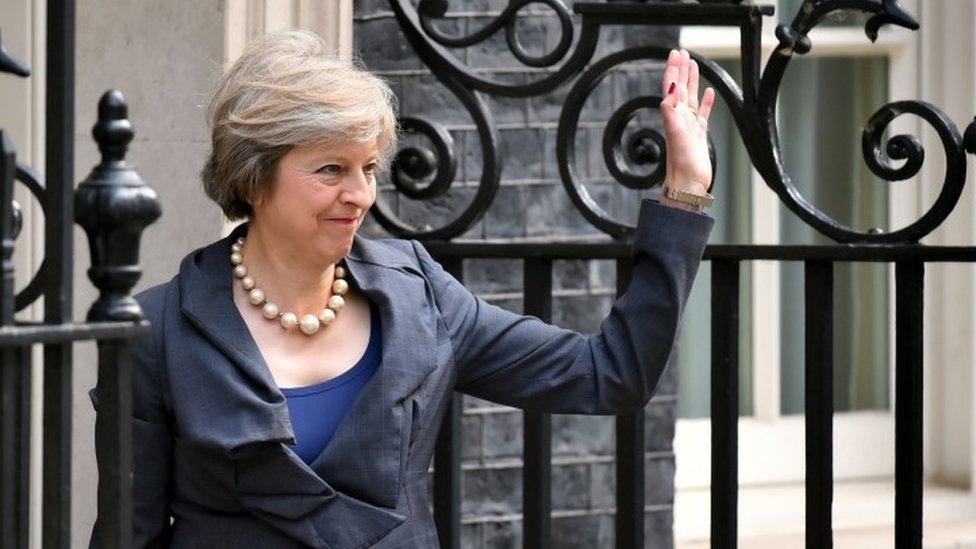UK will not abandon EU friends, says Boris Johnson
- Published
Foreign Secretary Boris Johnson says the UK will still play a "leading role" in Europe
The UK's exit from the EU does not mean it will be leaving Europe or "abandoning" its friends, the new foreign secretary has said in Brussels.
Making his debut on the international stage, Boris Johnson said the EU needed a "co-ordinated response" to terrorism in the light of the recent Nice attack.
He also said he wanted to "see restraint and moderation on all sides" in Turkey following the attempted coup.
Mr Johnson was meeting fellow EU foreign ministers for talks.
They discussed the Nice attack and the abortive coup in Turkey, but stressed there would be no formal discussions about Britain's EU exit.
Mr Johnson's journey to the talks - which will also be attended by US secretary of state John Kerry - was delayed after his plane had to make an emergency landing at Luton Airport after technical problems.
It meant the newly-appointed cabinet member was late for an informal dinner with EU foreign policy chief Federica Mogherini on Sunday evening.
Arriving at his first EU Foreign Affairs Council in Brussels, Mr Johnson said: "The message I'll be taking to our friends in the Council is that we have to give effect to the will of the people and leave the European Union.
"But that in no sense means we are leaving Europe. We are not going to be in any way abandoning our leading role in European participation and co-operation of all kinds."

Analysis
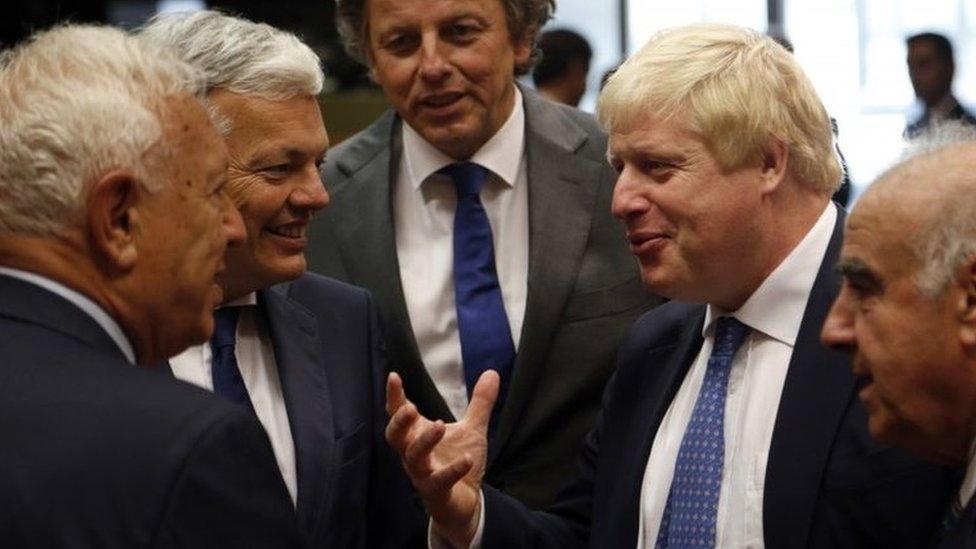
By James Robbins, BBC diplomatic correspondent
For Boris Johnson the classicist, the omens for his first international meeting - at the heart of the EU in Brussels - were not auspicious.
His RAF plane had to make an emergency landing on his way there.
Heading to a working breakfast with his 27 fellow foreign ministers early this morning, the new foreign secretary didn't duck the inevitability, as he sees it, of Britain leaving the European Union.
But he also took care to stress his central message - that Brexit is not the same as Britain leaving Europe.
For many of his EU counterparts, it does feel the same, however.
And it is awkward for the man who led the Leave campaign to victory that today's gathering marked another symbolic first: the participation by an American secretary of state in an EU foreign ministers' council.
John Kerry, in his remarks, has been treading a fine line between Washington's enthusiastic support for European integration - demonstrated by his ground-breaking attendance - and the need felt by him and President Obama to talk up prospects for both Britain and the EU after their divorce.

Ahead of the meeting, French foreign minister Jean-Marc Ayrault said the UK should start the formal process of leaving the EU as soon as possible to prevent Europe "falling into uncertainty".
He said he had a "frank but useful conversation" over the weekend with Mr Johnson, and that he would speak to him at Monday's meeting "with the biggest sincerity and frankness".
Speaking after the meeting, Mr Ayrault said the UK foreign secretary - who he called a "liar" last week over claims he made during the referendum campaign - came to the council "with some humility".
And US secretary of state John Kerry said he welcomed that Mr Johnson had "made clear" the UK "intends to remain a critical, vital, strong component of the European relationship, and of the United States' relationship with Europe".
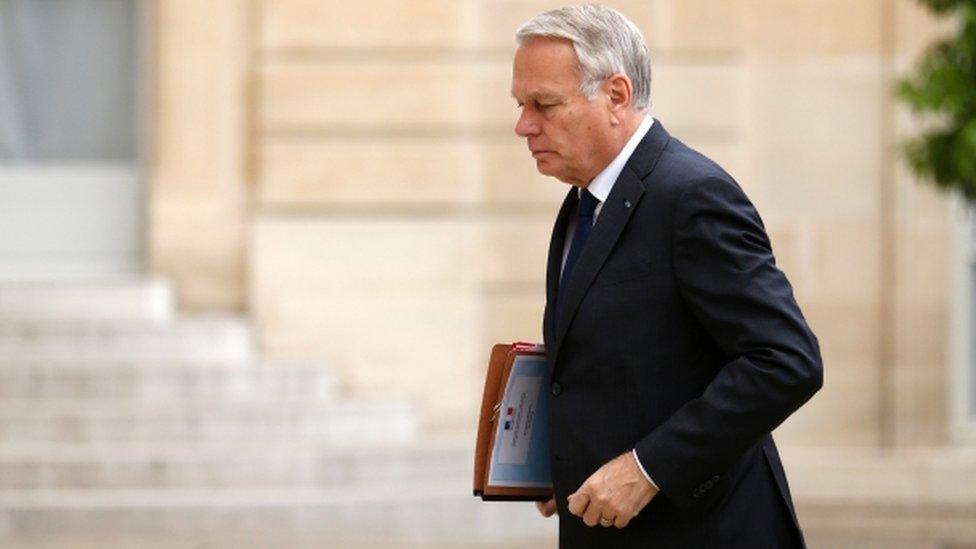
Jean-Marc Ayrault, French foreign minister, said the UK should trigger the Brexit process as soon as possible
The meeting comes after new Brexit Secretary David Davis said EU migrants who come to the UK as a departure date nears may not be given the right to stay.
He said there might have to be a cut-off point if there were a "surge" in new arrivals but any steps must be compatible with EU law.
The government has come under growing pressure to guarantee EU nationals already in the UK the right to stay after Brexit, but ministers say it would be unwise to make such a pledge without securing a reciprocal deal for British citizens living abroad in Europe.
The EU has warned that citizens in the UK must be treated with dignity.
After the meeting of foreign ministers, European Commission President Jean-Claude Juncker's spokesman said concerns around the 1.2 million Britons living in the EU and the three million EU nationals in the UK could only be sorted out once the UK triggered formal exit negotiations.
"In the meantime I think that when dealing with these issues we have a common interest to appeal for calm and dignity. We are talking about people now, so all sorts of statements and acts should be firmly anchored in the law," he said.
- Published17 July 2016
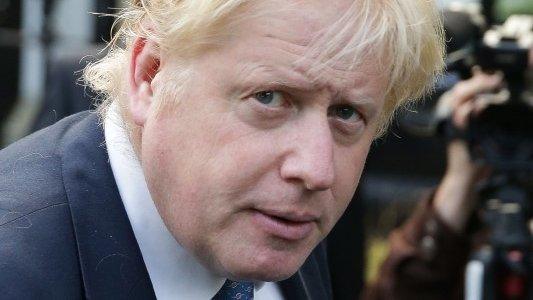
- Published16 July 2016
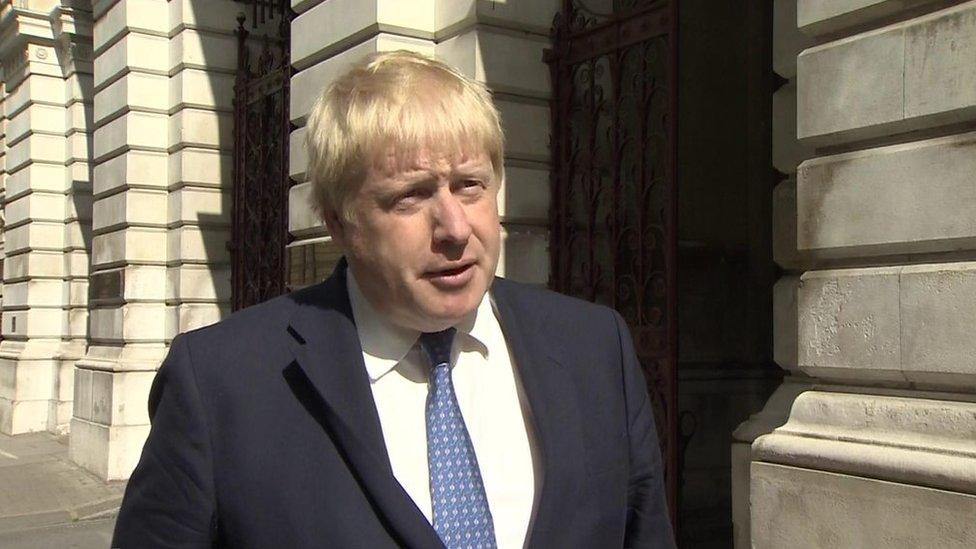
- Published17 July 2016
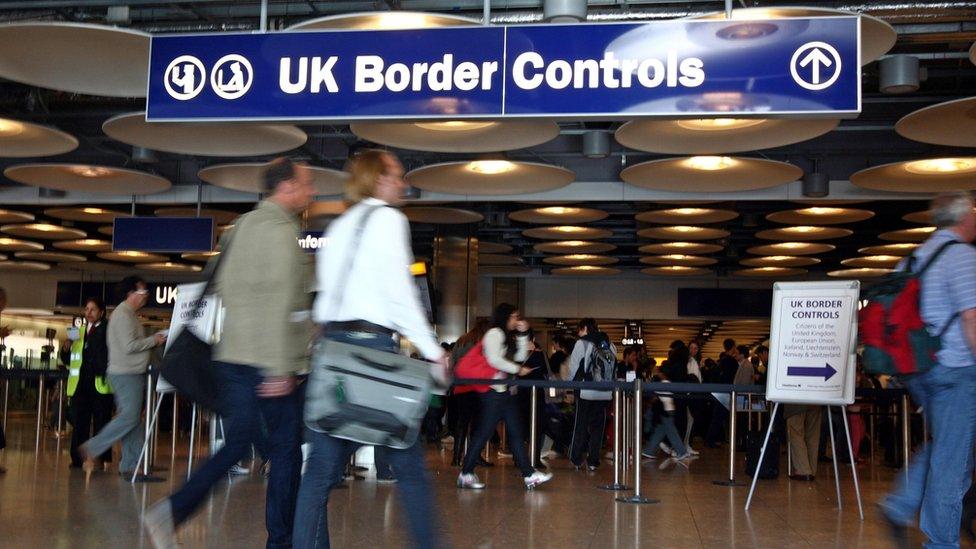
- Published17 July 2016
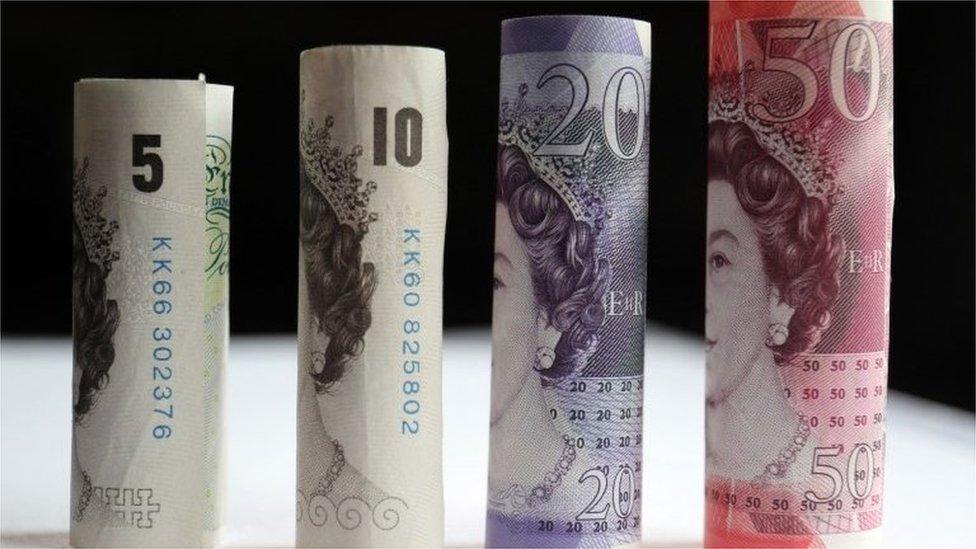
- Published14 July 2016
